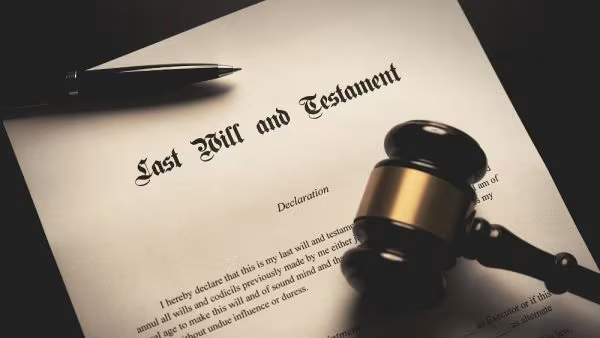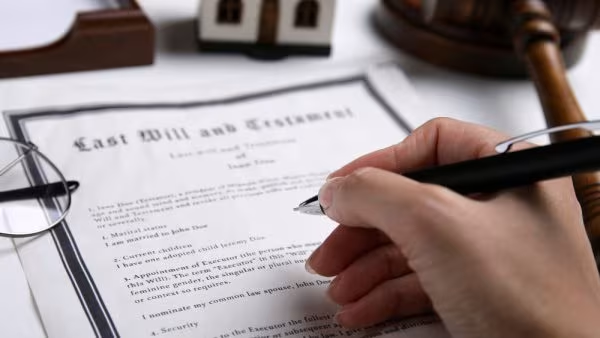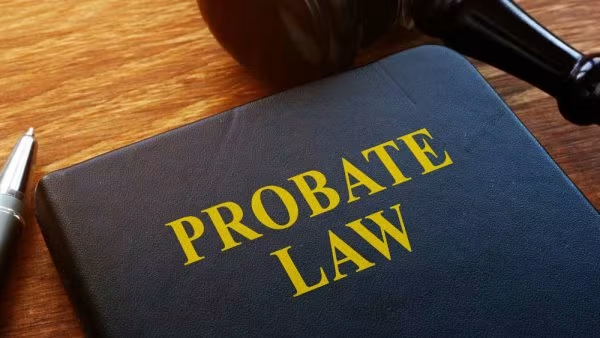Contest a Will or Estate
Losing a loved one is always a difficult time, and disputes over wills and estates can add further stress and emotional strain. If you believe that a will is unfair or invalid, you have the right to contest it. Contesting a will or estate involves challenging the legal validity of a will or seeking a greater share of the estate. In South Australia, there are specific laws and processes in place to address these issues. This comprehensive guide will provide you with the essential information you need to understand how to contest a will or estate in Adelaide.
What is Contest a Will or Estate?
Contesting a will or estate refers to the legal process of challenging the validity or fairness of a will or seeking a greater share of the deceased person’s assets. It allows individuals who believe they have been unfairly excluded or inadequately provided for to dispute the terms of the will and potentially receive a more favorable outcome.
In South Australia, contesting a will or estate is governed by the provisions of the Wills Act 1936 and the Inheritance (Family Provision) Act 1972. These laws provide a framework for resolving disputes and ensuring that the deceased person’s assets are distributed in a fair and just manner.
Key Elements/Types of Contest a Will or Estate
Contesting a will or estate can involve various legal grounds and claims. The following are some key elements/types of contesting a will or estate:
- Invalid Will: A will can be challenged if it is deemed invalid due to issues such as lack of testamentary capacity, undue influence, fraud, or improper execution.
- Inadequate Provision: If you believe you have not been adequately provided for in a will, you can contest the distribution of the deceased person’s assets and seek a greater share.
- Family Provision Claim: Family members, including spouses, children, and dependents, may be entitled to make a claim for additional provision from the estate if they have not been adequately provided for in the will.
- Lack of Testamentary Capacity: If you suspect that the deceased person did not have the mental capacity to understand the nature and consequences of making a will, you can contest its validity on the grounds of lack of testamentary capacity.
- Undue Influence: If you believe that the deceased person was unduly influenced by someone to change the terms of their will, you can contest the will on the grounds of undue influence.
- Fraud: Contesting a will on the grounds of fraud involves proving that the deceased person was deceived or misled into making or changing their will.
The Legal Process in South Australia
Contesting a will or estate in South Australia involves a legal process that typically follows these steps:
- Seek Legal Advice: Consult an experienced estate litigation lawyer who specialises in contesting wills and estates. They will assess your case, advise you on your rights and options, and guide you through the process.
- Mediation and Negotiation: In many cases, parties involved in a will dispute are encouraged to engage in mediation or negotiation to reach a resolution outside of court. This can help save time, costs, and reduce the emotional toll on all parties.
- Proceeding to Court: If mediation or negotiation is unsuccessful, or if the parties cannot agree on a resolution, the matter may proceed to court. The court will consider the evidence presented by both sides and make a decision based on the applicable laws and principles.
- Court Decision: The court’s decision will determine the validity of the will or the distribution of the estate. The court may uphold the will as valid, declare it invalid, vary its terms, or make orders for provision from the estate.
- Enforcement and Administration: Once the court has made its decision, the estate will be administered according to the court’s orders. This may involve distributing assets, paying debts and taxes, and ensuring the proper execution of the court’s ruling.
It is important to note that contesting a will or estate can be a complex and emotionally charged process. Seeking legal advice early on can help you understand your rights, assess the strength of your case, and navigate the legal complexities involved.
Your Rights and Obligations
As an individual contesting a will or estate in South Australia, you have certain rights and obligations. Understanding these rights and obligations is crucial to building a strong case and achieving a favorable outcome. Here are some key points to consider:
- Right to Contest: You have the right to contest a will or estate if you believe that you have been unfairly excluded or inadequately provided for.
- Time Limit: It is important to be aware of the time limits for contesting a will or estate. In South Australia, you generally have six months from the date of the grant of probate or letters of administration to lodge a claim. However, there may be exceptional circumstances where the court allows a claim to be made outside this time limit.
- Evidence and Documentation: Gathering relevant evidence and documentation is essential to support your case. This may include financial records, medical reports, correspondence, and witness statements.
- Legal Representation: Engaging an experienced estate litigation lawyer is highly recommended. They will guide you through the legal process, provide client-focused advice, and advocate for your rights and interests.
- Costs: Contesting a will or estate can involve legal costs. It is important to discuss the potential costs with your lawyer and consider the available funding options, such as a no-win, no-fee arrangement or applying to the court for provision from the estate to cover your legal costs.
- Mediation and Negotiation: Before proceeding to court, parties involved in a will dispute are encouraged to engage in mediation or negotiation to reach a resolution. This can help save costs, time, and preserve family relationships.
It is crucial to seek timely legal advice to understand your specific rights and obligations in contesting a will or estate. An experienced lawyer can guide you through the process and help you navigate any challenges that may arise.
Common Issues and Solutions
Contesting a will or estate can give rise to various common issues. Here are some of the most common issues and potential solutions:
- Family Provision Claims: Family members who have not been adequately provided for in a will may make a family provision claim. In such cases, the court will consider factors such as the financial needs and resources of the claimant, the sise of the estate, and the relationship between the claimant and the deceased person.
- Lack of Testamentary Capacity: Contesting a will on the grounds of lack of testamentary capacity requires demonstrating that the deceased person did not have the mental capacity to understand the nature and consequences of making a will. Medical evidence and witness statements may be required to support this claim.
- Undue Influence: To contest a will on the grounds of undue influence, you need to prove that the deceased person was coerced, manipulated, or unduly influenced by someone to change the terms of their will. This can be challenging to prove, but with the help of an experienced lawyer and supporting evidence, it is possible to make a successful claim.
- Invalid Will: A will can be challenged if it is deemed invalid due to issues such as lack of testamentary capacity, undue influence, fraud, or improper execution. Contesting an invalid will requires gathering evidence and presenting a compelling argument to the court.
- Mediation and Negotiation: Engaging in mediation or negotiation can be a cost-effective and time-saving solution to resolve will disputes. It allows parties to discuss their concerns, reach a mutual agreement, and avoid the emotional strain associated with court proceedings.
Every will dispute is unique, and the specific issues and solutions will depend on the circumstances of each case. Seeking advice from an experienced estate litigation lawyer will help you understand the best approach to address your particular situation.
Why Choose Wright Street Lawyers
When contesting a will or estate, having the right legal representation is crucial. At Wright Street Lawyers, we are dedicated to providing client-focused guidance and representation in will disputes and estate litigation matters. Here’s why you should choose us:
- Experience: Our team of experienced estate litigation lawyers has a deep understanding of South Australian laws and the complexities involved in contesting wills and estates.
- Personalised Approach: We take the time to understand your unique circumstances and tailor our strategies to your specific needs and objectives.
- client-focused Advice: Our lawyers provide client-focused advice based on their extensive knowledge and experience in will disputes and estate litigation. We will guide you through the legal process, explain your rights and options, and help you make informed decisions.
- Strong Advocacy: We are committed to protecting your rights and advocating for your best interests. Our lawyers will vigorously represent you in negotiations, mediations, and court proceedings to achieve the best possible outcome.
- Compassionate Support: We understand the emotional impact of contesting a will or estate, and we provide compassionate support throughout the process. Our team is here to listen, answer your questions, and alleviate your concerns.
- Cost-Effective Solutions: We strive to provide cost-effective solutions to our clients. We will discuss the potential costs with you upfront and explore funding options such as no-win, no-fee arrangements or applying to the court for provision from the estate to cover your legal costs.
Choosing the right legal representation can make a significant difference in the outcome of your will dispute. Contact Wright Street Lawyers today for a confidential consultation and let us help you contest a will or estate effectively.
FAQs
1. Can I contest a will if I am not a family member?
Yes, you can contest a will even if you are not a family member. The Inheritance (Family Provision) Act 1972 allows certain individuals, such as dependents or close friends, to make a family provision claim if they have not been adequately provided for in the will.
2. How long do I have to contest a will in South Australia?
In South Australia, you generally have six months from the date of the grant of probate or letters of administration to contest a will. However, there may be exceptional circumstances where the court allows a claim to be made outside this time limit.
3. Can I contest a will if I have already received a small provision?
Yes, you can still contest a will even if you have received a small provision. If you believe that the provision is inadequate considering your needs and the sise of the estate, you can make a family provision claim to seek a greater share.
4. How much does it cost to contest a will?
The cost of contesting a will can vary depending on various factors, such as the complexity of the case, the amount of work involved, and the legal fees of your chosen lawyer. It is important to discuss the potential costs with your lawyer upfront and explore funding options, such as a no-win, no-fee arrangement or applying to the court for provision from the estate to cover your legal costs.
5. Can I avoid going to court to contest a will?
Yes, in many cases, parties involved in a will dispute are encouraged to engage in mediation or negotiation to reach a resolution outside of court. This can help save time, costs, and preserve family relationships. However, if mediation or negotiation is unsuccessful, the matter may proceed to court.
Get client-focused Legal Help Today
Contact Wright Street Lawyers for a confidential consultation




